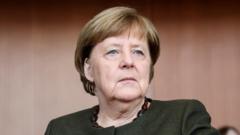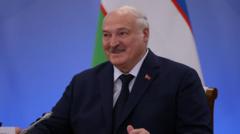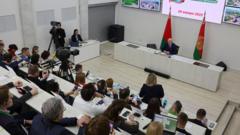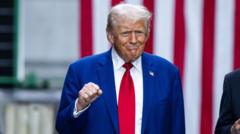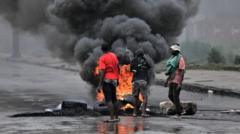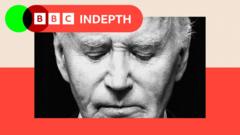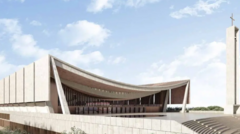Ghana's electoral landscape is set for transformation as the nation votes for a new president, navigating a backdrop of economic difficulties and a debt crisis.
Elections in Ghana: A New Leadership Awaits
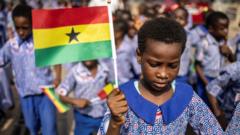
Elections in Ghana: A New Leadership Awaits
Ghana prepares for a significant shift as elections promise new leadership amid economic challenges.
Election Day has dawned in Ghana, marking a pivotal moment for the nation as it prepares to choose a new leader amid pressing economic challenges. With the current president, Nana Akufo-Addo, stepping down after two terms, Ghanaians are poised to decide their future, underpinned by concerns over rising living costs and a crippling debt crisis.
Voters are looking towards former President John Mahama, who represents the National Democratic Congress (NDC), in hopes of reclaiming power. His main rival is Vice-President Mahamudu Bawumia from the governing New Patriotic Party (NPP), who would make history as the country's first Muslim president if elected. Other notable candidates include Nana Kwame Bediako, a businessman appealing to the youth, and Alan Kyerematen, who recently departed from the NPP.
Registered voters of nearly 19 million will also be determining their parliamentary representatives across 275 constituencies. In contrast to the legislative efforts aimed at boosting female representation in politics, only one female candidate, Nana Akosua Sarpong Frimpomaa from the Convention People's Party (CPP), stands in the presidential race. The only other female candidate, Akua Donkor, who passed away last month, will still appear on ballots due to a disqualification of her successor.
Historically, elections in Ghana since 1992 have seen dominion from either the NDC or the NPP, and no party has achieved more than two consecutive terms. Voting will take place from 07:00 to 17:00 GMT, with land borders closed until Sunday, a precaution viewed as unusual by local observers. Preliminary election results are expected within three days.
For a presidential candidate to win outright, they must receive over 50% of the vote; failing that, a run-off will take place by late December between the top two candidates. As campaigns concluded, Bawumia emphasized his administration's accomplishments, while Mahama articulated a vision of opportunity and justice for Ghanaians. The electorate is anxious, with the World Bank reporting a spike in inflation peaking at 54.1% last year, pushing many into poverty as the nation navigates debt restructuring negotiations.
Unemployment remains a significant concern, particularly among the youth, whose votes could be decisive in this critical election.


